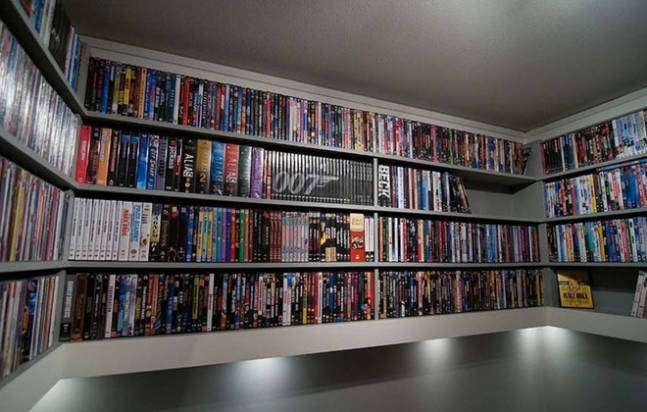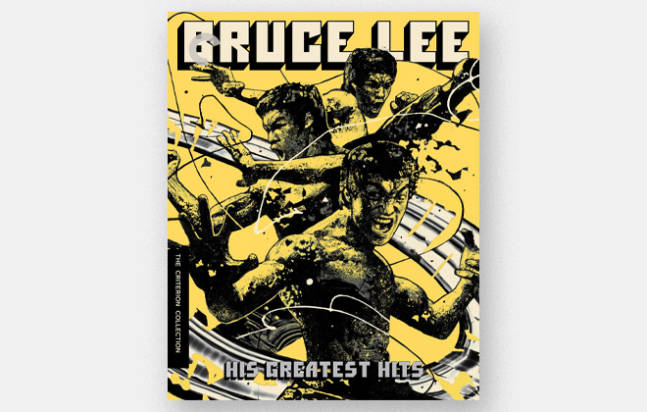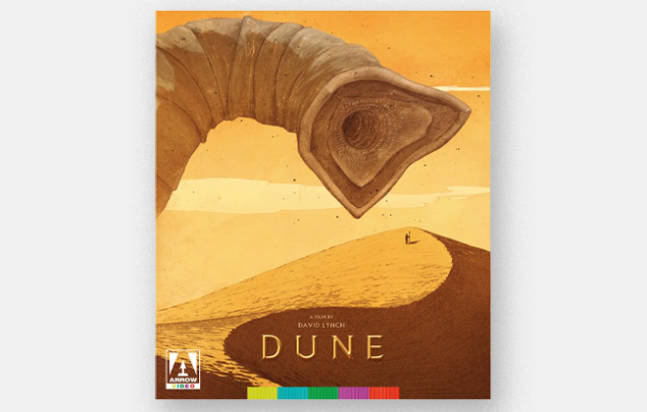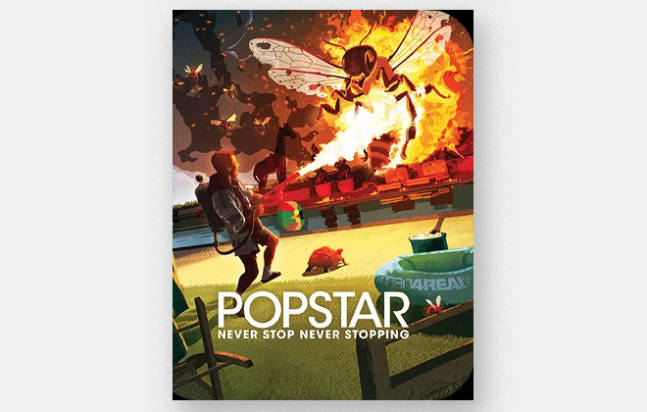Last year, the Motion Picture Association tallied the number of consumers worldwide with subscriptions to streaming services as of 2020. The final count stopped at a cool 1.1 billion. That, to use a brainy technical term, is a lot of consumers.
That MPA report isn’t exactly surprising. There’s a good chance someone has read or is reading this very piece as they binge The Great British Baking Show and sigh longingly for the glory days with Sandi Toksvig. Over the past decade or so, streaming platforms like Netflix, Hulu, and Amazon Prime have secured a sturdy place in media culture by leveraging their heavy influence over the way people watch television and movies. It’s also allowed artists to tell stories they couldn’t have if the industry was still stuck in the dark ages of cable.
At the heart of the streaming promise is choice coupled with easy access to seemingly unlimited content. Don’t be fooled, though. Streamers aren’t your friends. They don’t care what you watch, they just care that you’re watching. It’s how they keep the lights on.
While choice is good, the average streamer offers choice without curation or stability. Sure, customers reap the benefits of nigh-endless libraries of movies and TV shows alike: Classics, new hotness, nostalgia comfort blankets, true crime, fictional crime, wanton bleak medieval fantasy prestige, comedy, dramedy, plain old drama, Ryan Murphy’s and Shonda Rhimes’s next crossover spin-offs, Pixar movies shunted almost entirely to small screens instead of the large ones they’re accustomed to. Whatever your mood and no matter your tastes, there’s always something to stream.
But no one knows you better than you do — especially not a fancy pants machine learning algorithm — and there’s no better way to satisfy your moods and your tastes than with the most recently antiquated form of home viewing technology: The humble Blu-ray.

The Case For a Blu-ray Collection
Blu-ray collections have a narrower set of options compared to any streaming network, but in some ways that’s a pro instead of a con. Ever hear of decision paralysis? There is such a thing as too much. Watching whatever the algorithm queues up for you until either you fall asleep or your eyes start hemorrhaging is no way to engage with art, much less appreciate it. For most consumers, appreciation isn’t a compelling reason to cancel their streaming subscriptions (streaming does have clear perks, after all). But maybe it’s enough to convince people to put stock in physical media again, because in just about every measurable way, physical media simply outclasses digital alternatives.
You Don’t Have To Be a Collector To Have a Physical Media Collection
There’s one obvious advantage streaming has over physical media: cost. Paying for a streamer means you pay for a treasure trove of material to dive into, whereas paying for a Blu-ray release means you pay only for the material that’s recorded and stored on the disc (or discs).
Building a Blu-ray collection isn’t cheap. Save for lower end Blu-rays, which tend to run in the range of $17.99 to $19.99, you’ll spend as much as the combined cost of three basic streaming plans when you buy physical media. Depending on the label you’re buying from, you could spend considerably more: The Criterion Collection, the gold standard of boutique Blu-ray companies, prices its standard releases at $39.99 a pop. If there’s a reasonable argument against lining shelves with Blu-rays, it’s money.
But money comes hard and spending on subscriptions comes easy. What’s $7.99 a month here, $15.99 a month there? This form of unconscious spending drains funds without friction as your card is charged automatically month after month.
On the other hand, maybe you can’t fathom forking over $30 for that sweet-looking Nope steelbook. But Best Buy won’t leave a smoking $30 crater on your bill unless you actively decide to buy that sweet-looking Nope steelbook. Physical media retailers only charge you once at the point of sale versus streamers that nickel and dime you every month.
And there’s no need to worry about there being any shortage of where to buy said Blu-ray discs outside of big box stores, either.
Where to buy Blu-ray and 4K movies:
- The Criterion Collection
- 88 Films
- Vinegar Syndrome
- Arrow Video
- Severin Films
- Olive Films
- Altered Innocence
- Shout Factory (and its horror-based sub-brand, Scream Factory)
- Indicator
- Kino Lorber Studio Classics
Less Isn’t More: More Is More
Flashy lines of code tell the streamers what content to recommend to individual viewers, but anyone familiar with streaming knows that these recommendations usually start strong and end with nonsequiturs. Going from, say, The Sandman to The Mist to Mr. Harrigan’s Phone to Me Time is one incongruous journey.
Not every streaming service can be The Criterion Channel, Shudder, or HBO Max (pre-David Zaslav). But for the most part, streaming services don’t bother getting to know their customers outside of their billing information, so ultimately all they can offer is that content deluge.
Movies and TV shows look and sound better on Blu-ray than they do in digital formats. More importantly, appearance isn’t tied to your network speed, so unless you’re cleaning your discs with sandpaper they’ll always look superior to their digital equivalents. Presentation matters. The value of picture quality — defined by contrast as well as color — can’t be overstated. The sharper the picture, the more likely audiences are to enjoy themselves, or, and this is perhaps even more important, the more likely they are to engage with what they’re watching.
That benefit is shared across all tiers of Blu-ray, from bare-bones releases to premium sets packaged with love and affection by boutique outlets. Whether they’re rich in supplemental features or determinedly no-frills, every single Blu-ray brand on the market puts out products that outclass streamers both visually and aurally. The cost increases when you get into top-end brands, but the extras do, too.
Buying a film on Blu-ray or 4K from, say, Criterion or Vinegar Syndrome often means buying written or visual essays produced by film scholars, academics, and critics, as well as behind the scenes footage, documentaries, and interviews with the cast and crew in addition to the film. It’s an opportunity to understand the material in new ways, even if you’ve watched it a hundred times.
What’s Yours Is Yours, Until It Isn’t
There’s one other important edge that physical media has over digital: ownership. Streaming promises consumers access, and access is a gift. It’s also a mirage. Movies and shows, even the ones that companies label as “original,” come and go from services depending on whether the license stays valid or the costs of streaming them are worth paying for.
Earlier this year, for example, when David Zaslav took over as Warner Bros. Discovery’s CEO, the service cut 36 titles, including a handful of originals, from its lineup. This isn’t an outcome unique to HBO Max. It could happen with any streamer. Peacock, out of the blue, could stop offering Focus Features films, and you’ll kick yourself for not watching Honk For Jesus, Save Your Soul before the shot clock expired. (Just kidding. You won’t kick yourself over Honk For Jesus, Save Your Soul. But you get the idea.)
“Ah!” you say. “But I can purchase movies digitally on Apple TV! Check and mate, sir.” That’s true! But cost-cutting is merciless, and licensing is fickle. You spent your money. You downloaded the movie. You still don’t actually own that movie. It exists on your hard drive by the mercy of licensing, and by extension the whims of streaming services and licensing fees. Digital goods are ephemeral, but physical media is forever.
Okay, not literally forever. Blu-rays degrade over time and they can break, so make sure you store them snug and secure if you live in a house with kids (or cats). Accidents happen. What won’t happen with physical media is seizure. Vinegar Syndrome’s Kurtis Spieler won’t break into your house in the dead of night and snatch your copy of New York Ninja from your shelf like a Bridgeport ninja. Criterion Collection president Peter Becker won’t corner you in an alley and blackmail you into handing over your The Complete Films of Agnès Varda set that grandma gave you for Christmas. Owning your physical media means owning your physical media. You paid for it. You keep it. That’s the covenant.
If you haven’t thought twice about buying a Blu-ray in years, now might be a good time — just before the half dozen streaming subscriptions you’re signed up for slug you right in the wallet on the 30th.
Must-Own Blu-rays That Are Worth Buying
Start with the movies you know, love, and will rewatch on the regular. But if you’re looking for some expert opinions on what else to get, here’s a trio of bangers sourced far and wide from the best specialty Blu-ray outfits in the business today.

Bruce Lee: His Greatest Hits from The Criterion Collection
Criterion box sets tend to run an arm, a leg, whichever nonessential organ you can spare, and maybe an ear. The Bruce Lee: His Greatest Hits set is no exception to the rule. That said, it costs half as much as the Federico Fellini and Agnes Varda sets. But seeing Bruce Lee in a catalog defined mostly by European and American masters of art cinema is a refreshing reminder that cinema worthy of being called “important” can include cinema where arguably the greatest martial arts movie star of all time kills Chuck Norris in a fist fight. Lee’s influence remains, even coming up on half a century after his death, in not only movies but popular culture writ large. Criterion highlights that in this set with such attention to detail that the product ends up feeling like a devotion to his memory and an education in his legend.
Dune – 4K Ultra HD from Arrow Video US
Everyone’s all about Denis Villeneuve’s Dune adaptation, and for good reason. But David Lynch’s 1984 take on Frank Herbert’s genre-defining sci-fi novel deserves love, too, which Arrow happily give in the form of a 4K upgrade. The picture looks terrific, assuming you’re willing to accept Lynch’s visual idiosyncrasies on their terms instead of wrinkling your nose at them. More importantly, the scads of extras, the included 2003 doc Impressions of Dune, and scads of featurettes devoted to the film’s effects work will fill you with newfound respect for the effort put into bringing Dune ‘84 to life, even if they won’t necessarily make you like the movie any better.
Popstar: Never Stop Never Stopping [Limited Edition Steelbook] from Shout! Factory
Sometimes you don’t need a Blu-ray to change your life, your mind, or your tastes via persuasive and thorough supplementary bonuses. Sometimes you just need it to watch a movie, and in those cases, it often helps for the case to look cool as hell. Steelbooks look cool as hell by nature, but only one is stamped with a comic recreation of Andy Samberg torching a wasp with a flamethrower: Popstar: Never Stop Never Stopping. A contemporary comedy classic decorated by one of the sickest covers you’ll ever see. You can’t say no to that.
Buy Now $30






